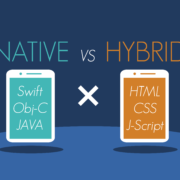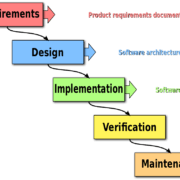Education Apps and Your Business: The 4 Signs It’s Time to Consider One
Education apps are an exciting avenue that more businesses should explore. And by business entities, we mean all types, from small home-based businesses to large international enterprises.
But what are education apps, and how do they benefit businesses? In short, they function primarily as powerful learning tools. They help to fill in knowledge gaps that business leaders, entrepreneurs, employees, and even clients — in specific cases — may have. And in more extreme cases, these apps may cover an entire staff training program of an enterprise.
More importantly, given the interactive nature of education apps, they offer a more engaging learning path. Quite understandable considering that wading through thick employee training and development books or watching cheesy training videos may put off most people. Furthermore, education apps can become considerably fun with well-implemented gamification features, making learners look forward to upcoming sessions.
Now you may be wondering if these apps are right for your business. Short answer: you likely do if you require a cost-effective and effective way to train staff. And you most certainly do if your staff works remotely and across various time zones. However, there are several more reasons you should consider developing one or more education apps for your business — read on!
1. Education Apps Enhance Existing Training Materials
If you’ve been in business for some time, you likely have a sizable amount of training materials already available at your disposal. And your staff has likely become accustomed to learning from your existing training modules and their respective formats. These formats could include books, documents, or even audio and video lectures and presentations, to name a few.
So developing an education app might make you think that you now have to replace the above. But that wouldn’t be wise, especially if you’ve already spent a lot of time and money on these. And that’s especially true if your staff enjoys learning from these training materials, and they do so effectively.
However, it’s worth developing an education app to serve as the central repository for all your training materials. And you can start by converting all your training books and documents into a Portable Document Format (PDF) or a proprietary format. Then, you may store these digital documents on your servers, and your app will retrieve these when the user requests them.
Furthermore, you’ll have complete control of the dissemination of these files. For example, only your sales staff will have access to sales-orientated training materials, and your technical staff won’t have authorization. You may also decide to limit the time staff will view these files or keep track of how long it takes for each staff member to absorb new or existing learning materials.
You can also digitize all your analog-based audio and video presentations and upload them to your repository. But if you’re worried that these contain company secrets that could leak out to competitors, you can secure them. Apply a Digital Rights Management (DRM) lock to all your content, considerably limiting what an unscrupulous employee can do.
2. Run Live Training Sessions
Perhaps your business specializes in a highly technical field that changes regularly. A good example would be a custom PC building company, which deals with an ever-evolving range of computer parts that regularly hit the marketplace. But the latest computer parts often require additional know-how to install correctly without damaging any components.
High-end cooling components, graphics cards, motherboards, and power supply units (PSUs) can be finicky and expensive to replace if damaged. And things get more complicated every time AMD and Nvidia release their latest graphics cards or when manufacturers have to update their motherboards to stay compatible with the latest central processing units (CPUs).
An experienced technician may have little trouble putting a system together, but inexperienced staff will likely struggle. Ideally, you want these staff members to level up their skills to be as competent as your expert technician. And you want them to gain knowledge of the latest installation methodologies every time a manufacturer releases a new component.
But how do you keep all your staff up to speed? And what happens if you have staff that comes into your workshop and some that work off-site?
You can solve both issues with an app that helps you run live training sessions. Your expert technician can live stream himself working on a new PC build while explaining each step of the process. The other staff members will follow the stream and use the app’s built-in chat function if they have any questions.
And this gives the expert technician the opportunity to explain things further and interact with the other staff members. Furthermore, the other staff may be working on their own builds concurrently and now have the ability to receive help directly from the expert technician even when not in the same building.
3. Engage And Teach Your Clients
Believe it or not, you can engage and teach your clients with the right type of education app. Moreover, you can further build brand loyalty. But how do you do this with an education app, and is it even possible?
Well, you should evaluate whether or not your product or service offering requires teaching. If you’re running a dropshipping business, there isn’t much need for an education app that will interest your clients in any conceivable way. But if you own a popular restaurant with meals prepared by a renowned chef, there’s plenty of potential for such an app.
Your clients may want to know how your chef prepares that tasty dish of pesto pasta. And quite possibly, many other items on the menu. So, you can fulfill that wish by creating an app where clients can access cooking videos and even live training sessions. They can follow your chef’s pre-recorded or live-streamed videos and prepare these meals from their homes.
Now, you may think that it’s unwise to share the recipes of your restaurant’s choice dishes. After all, you don’t want to reveal secret recipes or have clients stop visiting your establishment. But you don’t need to give away your most valuable recipes. A small sampling of menu items or slightly altered recipes should please most clients. And you may decide to put these behind a paywall or allow access via a subscription fee if the training sessions prove popular.
4. AR & VR Are The Perfect Education Technologies
Augmented reality (AR) and virtual reality (VR) work incredibly well as educational tools. That’s due to their ability to simulate real-world environments, objects, and scenarios. Furthermore, they offer a more convincing and immersive experience than any other technology.
Thus, if you need to train staff and put them in realistic or stressful situations, VR will do the trick. A VR application can have your staff repairing gas lines, operating heavy machinery, or undergoing mine training. In all these scenarios, staff won’t experience any physical risk, even though the training sessions closely emulate real-world dangers and possible outcomes.
And an AR app can help staff gain greater insight and awareness when training in a real-world environment. A staff member may need to change engine parts on an actual car. But may have difficulty remembering the names of all car parts and where each part fits. The AR app will overlay the relevant information inside the AR/VR goggles, AR glasses, or on the smartphone screen while still providing a clear view of the engine.
The Bottom Line
Businesses constantly evolve, so they need to train staff on an ongoing basis. Fortunately, education apps make this possible, as it’s more cost-effective and easier to create training programs in digital form than the more traditional methods. And mobile apps are the perfect vehicle for disseminating and accessing training content. Contact NS804 to learn how we’ll help you develop phenomenal education apps for your business today!












Leave a Reply
Want to join the discussion?Feel free to contribute!